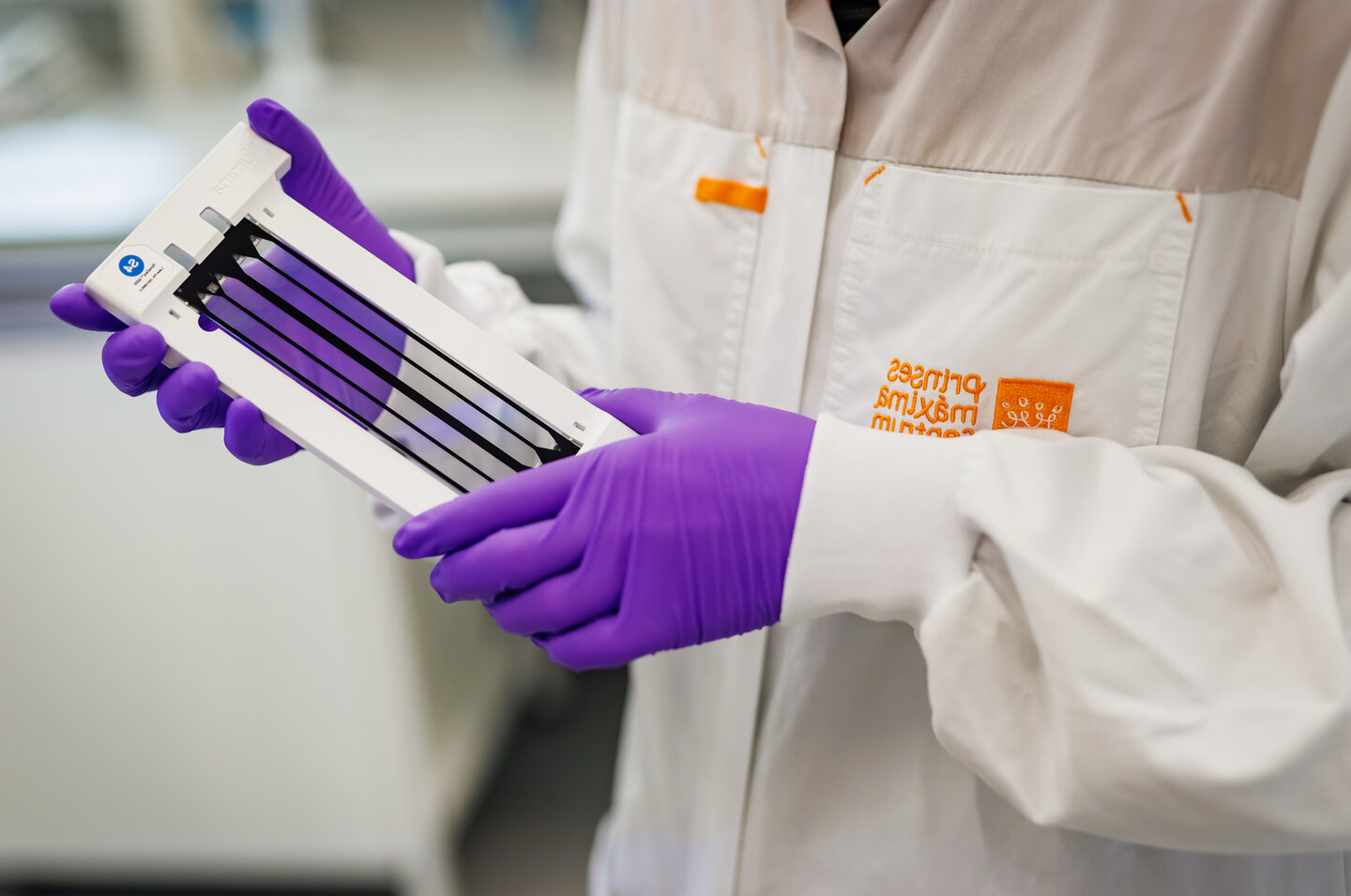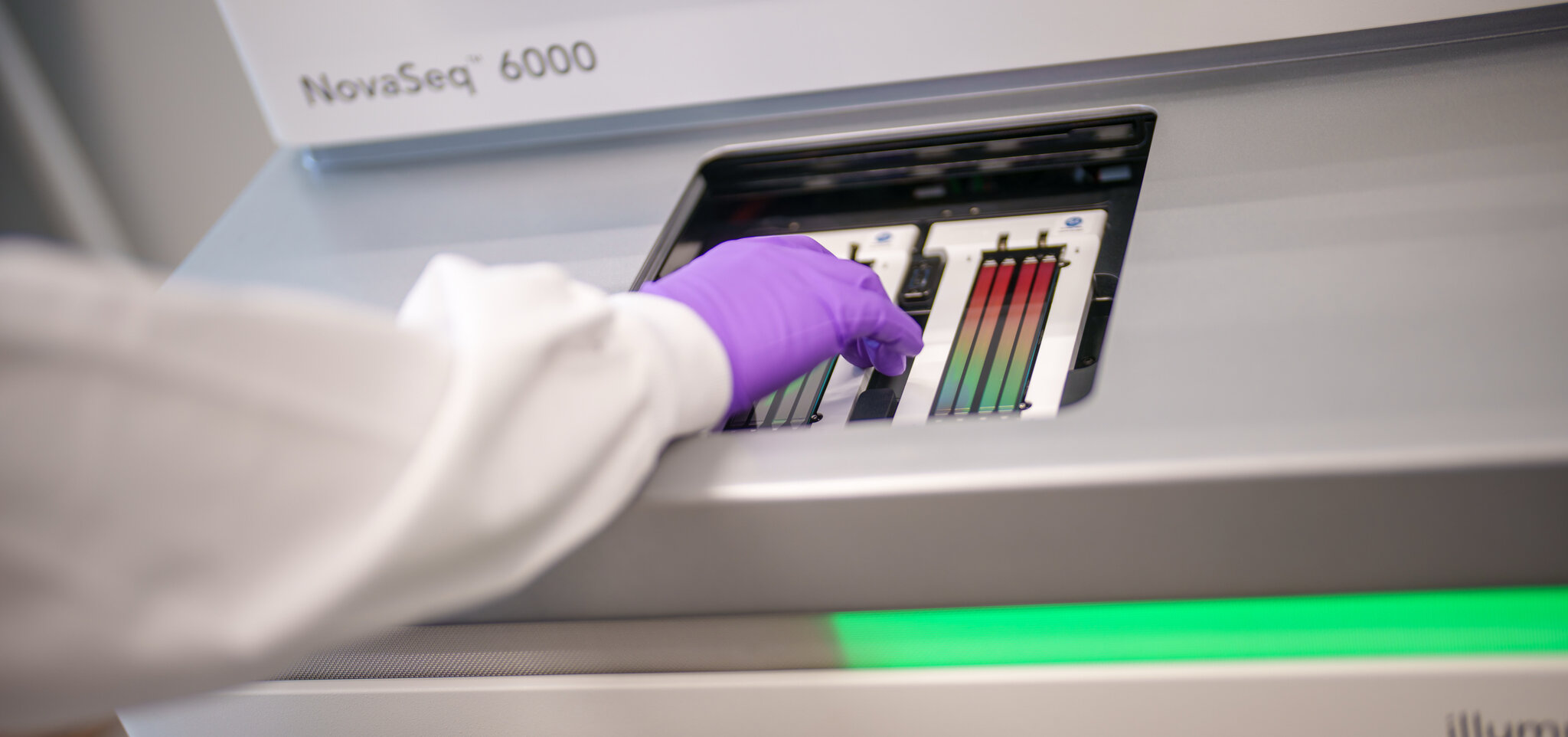Our Innovative Infrastructure
02

Whole Genome Sequencing for Every Child in the Princess Máxima Center
Starting May 2025, the Princess Máxima Center for pediatric oncology will screen the complete DNA of every newly admitted child before the start of their treatment. Whole genome sequencing will identify DNA variations that could underlie the initiation and growth of tumors. Through Oncode Accelerator Demonstrator Projects researchers can use these insights from patients’ tumor DNA and organoids to develop new therapies to advance precision medicine for children with cancer.
During the last decade, the use of technologies that sequence the human genome has spread rapidly in clinical and research settings. This has helped to identify genes associated with complex and rare diseases, including pediatric cancers.
Understanding DNA variations in pediatric tumors can have a positive impact in the clinic. It can help physicians make faster and more accurate diagnoses, determine the child’s risk level, and choose the best treatment based on their specific genetic alteration. In research and drug development, mapping the molecular profiles of different pediatric tumors is just as important. It helps researchers and industry partners in identifying mechanisms of action for drug development. Regulatory agencies can also use this knowledge to prioritize and oversee the development of treatments that effectively target these mechanisms.
Having this asset at admission is highly valuable for clinicians and research. It could make a difference at the individual patient level but also, help guide the development of drugs and novel therapies specifically for children with cancer.
Dr. Patrick Kemmeren, research group leader at the Princess Máxima Center and team lead in the Oncode Accelerator Well-defined Patient Cohorts Workstream
In Practice
The Princess Máxima Center's Laboratory for childhood cancer pathology and its Big Data Core have developed extensive expertise and state-of-the-art pipelines to analyze genomics data for diagnostics and the Máxima’s biobank. From May 2025 onward, the complete DNA of every child treated in the Máxima Center will be investigated for both diagnostics and research: a DNA sample will be extracted from the child’s tumor tissue, then fragmented into smaller pieces and sequenced to identify the bases that constitute each DNA fragment. These fragments are then re-assembled into the patients’ tumor genome and compared to a reference genome to identify genes, tumor DNA variations and associated molecular mechanisms altered in patients.

Demonstrator Projects
Upon request, pediatric cancer genome and associated clinical data will be available for Demonstrator Projects. Consent from the child and/or its parents is mandatory for the use of tissue and derived data that is stored at the Máxima’s biobank and that will become available for access via Oncode Accelerator. Later in 2025, clinical information along with tumor specific clinical information will be available through the Dutch Childhood Cancer Registry.
The costs for the comprehensive genetic testing will be covered jointly by the hospital’s care and research budget, supplemented by funding from Oncode Accelerator and the Adessium Foundation via the Prinses Máxima Centrum Foundation to develop the required infrastructure.
About
Dr. Patrick Kemmeren
Research group leader at the Princess Máxima Center and team lead in the Oncode Accelerator Well-defined patient cohorts workstream.